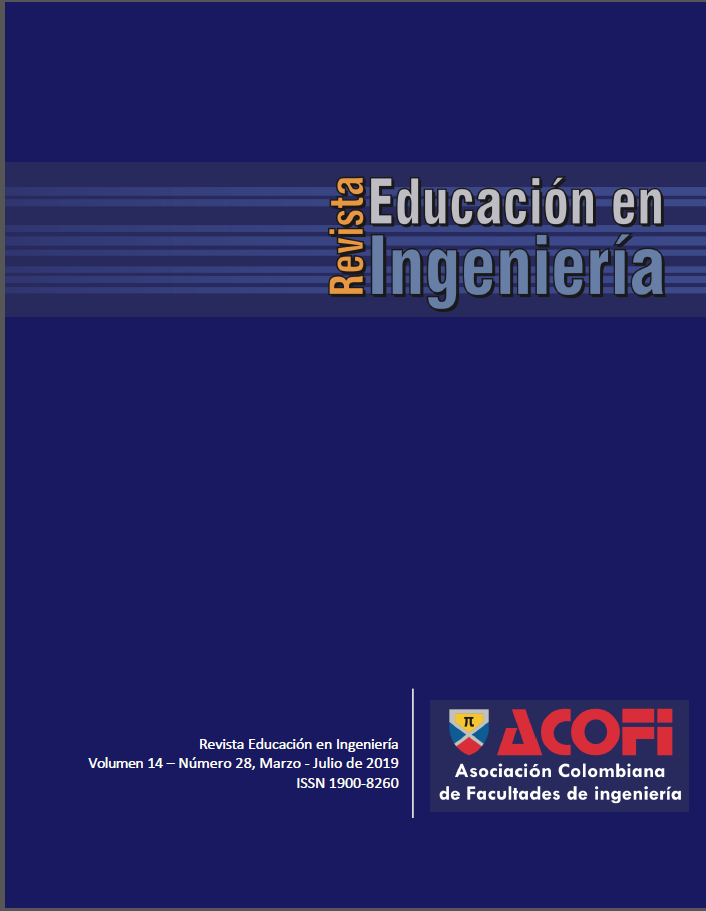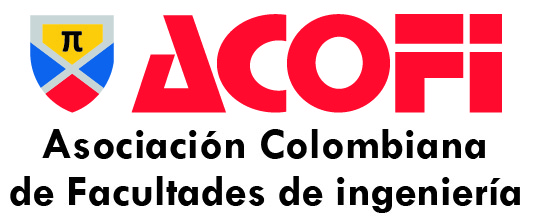LE1: una estrategia amistosa para un curso introductorio de programación
DOI:
https://doi.org/10.26507/rei.v14n28.998Keywords:
introducción a la programación, curso de programación, estrategia amistosaAbstract
Introductory programming courses present difficulties in distinct universities of different countries. The “Programming 1” course of the University of Los Andes in Venezuela presents difficulties related to the high rate of disapproved. The first contact with the course is very important, therefore, the purpose of this research is to provide a friendly strategy facilitating that first contact. The strategy that is carried out includes the creation of the PR1-ULA library and the planning of ten class sessions which must be provided in the first three weeks. The strategy was tested in the A-2017 and A-2018 semesters, obtaining a positive impact on students’ performance and allowing to discover in an early way the students’ potential.
Downloads
References
Timmermann, D., Kautz, C. and Skwarek, V., Evidence-based re-design of an introductory course "Programming in C", in: 2017 IEEE Frontiers in Education Conference (FIE), pp. 1-5, 2016. DOI: 10.1109/FIE.2016.7757492
Hegazi, M.O. and Alhawarat, M., The challenges and the opportunities of teaching the introductory computer programming course: case study, in: 2015 Fifth International Conference on e-Learning (econf), pp. 324-330, 2015. DOI: 10.1109/ECONF.2015.61
Blas, M.J., Hauque, F., Re, S. and Castellaro, M., A support tool designed as didactic material for teaching and learning programming, in: 2017 XLIII Latin American Computer Conference (CLEI), pp. 1-10, 2017. DOI: 10.1109/CLEI.2017.8226382
Dapozo, G.N., Greiner, C.L., Petris, R.H., Espíndola, M.C. and Company, A.M., Introduction to programming based on playful activities in the university, in: 2017 XLIII Latin American Computer Conference (CLEI), pp. 1-8, 2017. DOI: 10.1109/CLEI.2017.8226437
López, P.E.M., Ciolek, D., Arévalo, G. and Pari, D., The GOBSTONES method for teaching computer programming, in: 2017 XLIII Latin American Computer Conference (CLEI), pp. 1-9, 2017. DOI: 10.1109/CLEI.2017.8226428
Albarracín, M., Ferrigno, L. and Wachenchauzer, R., Adopt a language: a step towards the education of a reflective technology practitioner, in: 2017 XLIII Latin American Computer Conference (CLEI), pp. 1-7, 2017. DOI: 10.1109/CLEI.2017.8226445
Araujo, A.L., Santos, J.S., Andrade, W.L., Guerrero, D.D. and Dagienė,
V., Exploring computational thinking assessment in introductory programming courses, in: 2017 IEEE Frontiers in Education Conference (FIE), pp. 1-9, 2017. DOI: 10.1109/FIE.2017.8190652
Gómez-Álvarez, M.C, Sánchez-Dams, R. and Barón-Salazar, A., Trouble hunters: a game for introductory subjects to computer engineering, in: 2016 XLII Latin American Computing Conference (CLEI), pp. 1-8, 2016. DOI: 10.1109/CLEI.2016.7833398
González, L., Gómez, M.C. and Echeverri, J.A., Motivation and virtual education in computer science: case Universidad de Medellín-Colombia, in: 2017 IEEE Latin America Transactions, 15(6), pp. 1176-1181, 2017. DOI: 10.1109/TLA.2017.7932706
Castellanos, H., Restrepo-Calle, F., González, F.A. and Echeverry, J.J.R., Understanding the relationships between self-regulated learning and students source code in a computer programming course, in: 2017 IEEE Frontiers in Education Conference (FIE), pp. 1-9, 2017. DOI: 10.1109/FIE.2017.8190467
Hidalgo-Céspedes, J., Marín-Raventós, G. and Lara-Villagrán, V., Student understanding of the C++ notional machine through traditional teaching with conceptual contraposition and program memory tracing, in: 2015 Latin American Computing Conference (CLEI), pp. 1-8, 2015. DOI: 10.1109/CLEI.2015.7360049
Muñoz, R., Barcelos, T., Villarroel, R. and Frango, I., Using scratch to support programming fundamentals, International Journal on Computational Thinking (JCThink), 1(1), pp. 68-78, 2017. DOI: 10.14210/ijcthink.v1.n1.p68
Abidin, H.Z. and Zaman, F.H.K., Students' perceptions on game-based classroom response system in a computer programming course, in: 2017 IEEE 9th International Conference on Engineering Education (ICEED), pp. 254-259, 2017. DOI: 10.1109/ICEED.2017.8251203
Khaleel, F.L., Ashaari, N.S., Wook, T.S. and Ismail, A., Gamification-based learning framework for a programming course, in: 2017 6th International Conference on Electrical Engineering and Informatics (ICEEI), pp. 1-6, 2017. DOI: 10.1109/ICEEI.2017.8312377
Azmi, S., Iahad, N.A. and Ahmad, N., Attracting students' engagement in programming courses with gamification, in: 2016 IEEE Conference on e-Learning, e-Management and e-Services (IC3e), pp. 112-115, 2016. DOI: 10.1109/IC3e.2016.8009050
Fuentes-Rosado, J.I. y Moo-Medina, M., Dificultades de aprender a programar, Revista Educación en Ingeniería, 12(24), pp. 76-82, 2017. DOI: 10.26507/rei.v12n24.728
Delgado, A. and Paragulla, J.V., Improving teaching and learning in systems programming courses using participatory action research, in: 2016 IEEE Congreso Argentino de Ciencias de la Informática y Desarrollos de Investigación (CACIDI), pp. 1-5, 2016. DOI: 10.1109/CACIDI.2016.7786000
Almeida, R. and Pessoa, T., Scratch software in higher education: pedagogical experience in educational science, in: 2017 International Symposium on Computers in Education (SIIE), pp. 1-5, 2017. DOI: 10.1109/SIIE.2017.8259653
Hsu, W.C. and Lin, H.C.K., Impact of applying WebGL technology to develop a Web digital game-based learning system for computer programming course in flipped classroom, in: 2016 International Conference on Educational Innovation through Technology (EITT), pp. 64-69, 2016. DOI: 10.1109/EITT.2016.20
Su, J.M. and Wang, S.J., A Web-based learning activity integrated with scratch tool to support programming learning, in: 2017 10th International Conference on Ubi-media Computing and Workshops (Ubi-Media), pp. 1-4, 2017. DOI: 10.1109/UMEDIA.2017.8074137
Tek, F.B., Benli, K.S. and Deveci, E., Implicit theories and self-efficacy in an introductory programming course, in: 2018 IEEE Transactions on Education, pp. 1-8, 2018. DOI: 10.1109/TE.2017.2789183
Topalli, D. and Cagiltay, N., Improving programming skills in engineering education through problem-based game projects with Scratch, Computers & Education, 120, pp. 64-74, 2018. DOI: 10.1016/j.compedu.2018.01.011
Erol, O. and Kurt, A.A., The effects of teaching programming with scratch on pre-service information technology teachers’ motivation and achievement, Computers in Human Behavior, 77, pp. 11-18, 2017. DOI: 10.1016/j.chb.2017.08.017
Adorjan, A. and Kereki, I.F., Academic misconduct in projects: perspective of students and teachers of introductory computer science courses, in: 2017 XLIII Latin American Computer Conference (CLEI), pp. 1-7, 2017. DOI: 10.1109/CLEI.2017.8226375
Barrera, Y.C., Skills and strategies to promote learning algorithms and programming. evolution from learning objectives, in: 2017 XLIII Latin American Computer Conference (CLEI), pp. 1-10, 2017. DOI: 10.1109/CLEI.2017.8226464
Pérez, J. y Castro, J., Estímulo del razonamiento lógico mediante el juego Millonario en C para la asignatura “Programación 1”., Tekhné, 21(3), pp. 8-14, 2018.
Pérez, J. y Castro, J., LRS1: un robot social de bajo costo para la asignatura “Programación 1”, Revista Colombiana de Tecnologías de Avanzada, 2(32), pp. 68-77, 2018.
Pérez, J. and Pedroza, O., LM1: una metodología de estudio para la asignatura “Programación 1”, Revista Educere, 22(73), pp. 635-648, 2018.
Pinto, A. and Escudeiro, P., The promotion of the century learning skills through the development of games using scratch, in: 2017 12th Iberian Conference on Information Systems and Technologies (CISTI), pp. 1-6, 2017. DOI: 10.23919/CISTI.2017.7975870
Chang C. K., Using Computational Thinking Patterns to Scaffold Program Design in Introductory Programming Course, 2016 5th IIAI International Congress on Advanced Applied Informatics (IIAI-AAI), pp. 397-400, 2016. DOI: 10.1109/IIAI-AAI.2016.27
Bauer, A., Butler, E. and Popović, Z., Dragon architect: open design problems for guided learning in a creative computational thinking sandbox game, in: Proceedings of the 12th International Conference on the Foundations of Digital Games. ACM, 2017, 26 P.
Cernuda, A., Hevia, S., Suárez, M. y Gayo, D., Un estudio sobre el absentismo y el abandono en asignaturas de programación. ReVisión, 6(1), pp. 30-38, 2013.
Deitel, H. y Deitel, P., Cómo programar en C/C++ y Java, Pearson Educación, México, 2004.
Downloads
Published
How to Cite
Issue
Section
License
Total or partial reproduction of the documents published in the journal is authorized only when the source and author are cited.
| Article metrics | |
|---|---|
| Abstract views | |
| Galley vies | |
| PDF Views | |
| HTML views | |
| Other views | |









